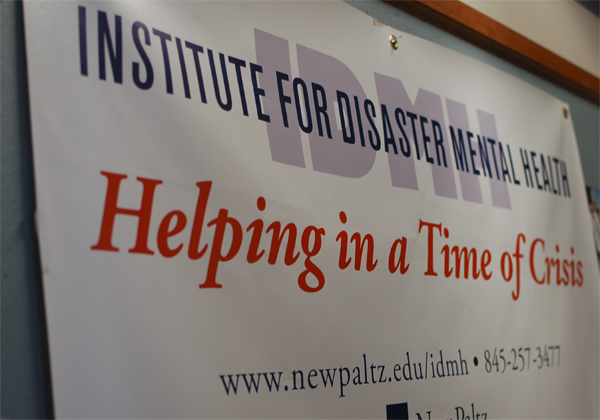
 The Institute for Disaster Mental Health (IDMH) at SUNY New Paltz is collaborating with health organizations and professionals in Israel, the West Bank and Gaza, to “address mental health needs of Israeli and Palestinian families” through a program called Families First.
The Institute for Disaster Mental Health (IDMH) at SUNY New Paltz is collaborating with health organizations and professionals in Israel, the West Bank and Gaza, to “address mental health needs of Israeli and Palestinian families” through a program called Families First.
“This project is being funded by a federal agency, the United States Agency of International Development (US AID), and it calls for proposals in that area to provide services to underserviced people,” Project Director and Director of IDMH James Halpern said. “[The] purpose is to manage and mitigate conflict in this part of the world. [To help them] manage it better and to find healthier solutions.”
The funding for Families First came through a $90,000 grant with support from the World Health Organization (WHO). Halpern said the project required bringing Israelis and Palestinians together, which was not an easy task.
Assistance will be provided through the distribution of “psychoeducational materials” in Hebrew, Arabic and English. The IDMH will explore strategic ways to disperse these materials.
Psychoeducation deals with patients who have mental illness such as schizophrenia, clinical depression and anxiety. It also looks to alleviate physical illness. Psychoeducational materials works with those afflicted to improve their quality of life.
One study from Families First found that “traumas stemming from human neglect, maliciousness and violence” can lead to anger, aggression and violent conflict. The goal of the IDMH is to provide effective coping strategies where people of that region feel they can better address trauma. It’s suggested that this program can bring stability to that region.
Fourth-year industrial organizational psychology major Elena Brondolo works closely with the IDMH on local research for this program. She said this includes surveys examining the distribution of the pyschoeducational material through the Red Cross.
“[IDMH] is to start data collection,” she said. “Hopefully what it shows is the weaknesses, [who’s] asking for the materials and people who are supposed to have them but might not have them handy.”
Brondolo said Red Cross volunteers and fieldworkers are the ones that “distribute information” out to those affected when a disaster occurs.
Deputy Director of IDMH and Assistant Professor of psychology Karla Vermeulen said she was also concerned with getting the psychoeducational resources to the people who need them the most.
“There’s a clear need for [the material] to get to the people who need them,” she said. “[The question is] how do we make sure they’re getting to [those people]?”
Vermeulen said “parallel research” was being conducted in regions designated for the Palestinians.
She said Halpern spent several years conducting cooperative research with Palestinian and Israeli colleagues.
“People living in chronic violence have a tremendous need [for these] resources, not by professionals, but to help themselves,” Vermeulen said.
Halpern said on Friday, April 20 there will be an IDMH and New York state Office of Emergency Management sponsored event called Building Capacity: Managing and Mitigating Responder Stress.
